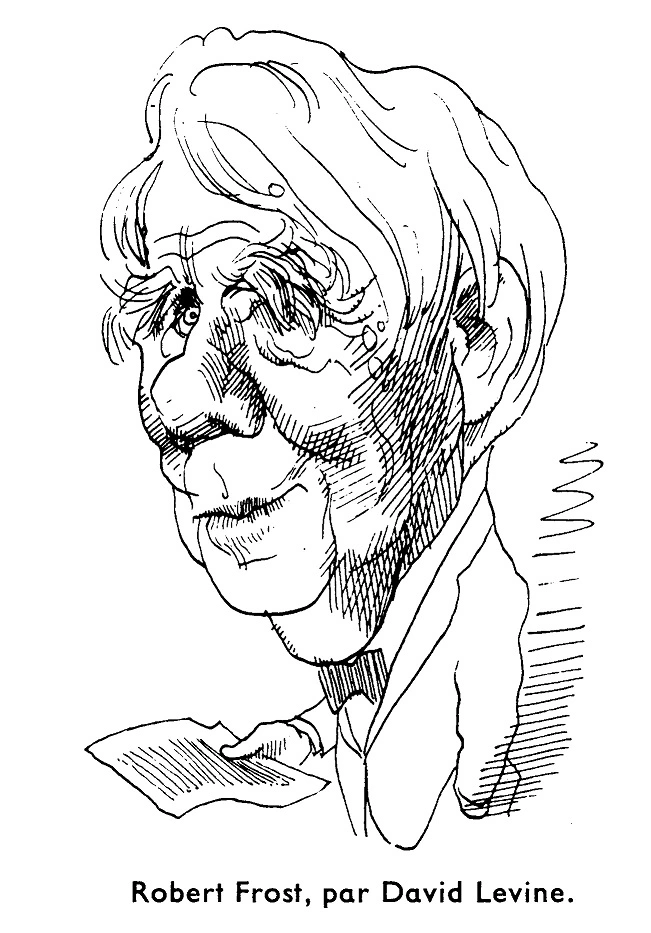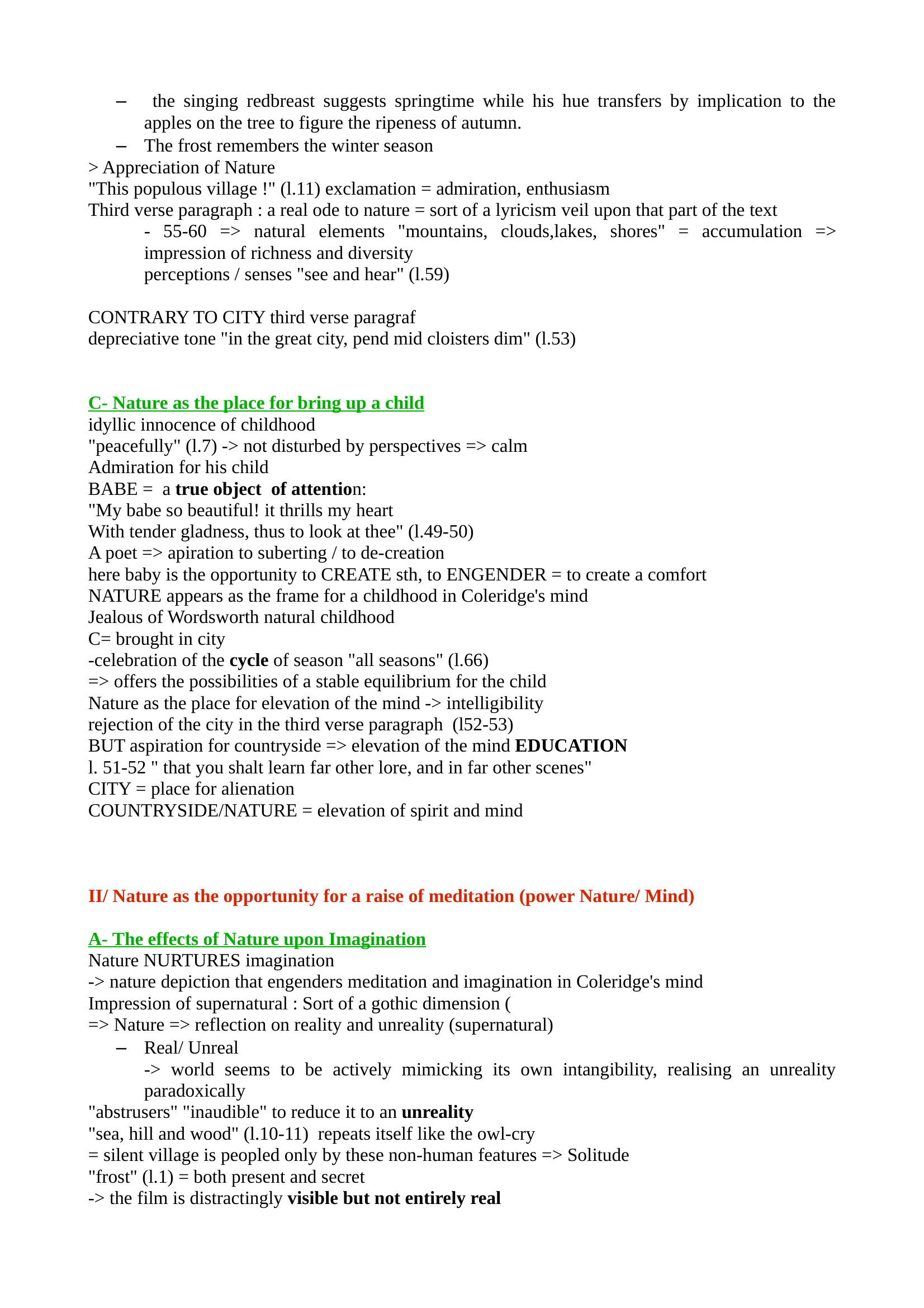Coleridge's poem: Frost at midnight
Publié le 21/10/2012

Extrait du document


«
– the singing redbreast suggests springtime while his hue transfers by implication to the
apples on the tree to figure the ripeness of autumn.
– The frost remembers the winter season
> Appreciation of Nature
"This populous village !" (l.11) exclamation = admiration, enthusiasm
Third verse paragraph : a real ode to nature = sort of a lyricism veil upon that part of the text
- 55-60 => natural elements "mountains, clouds,lakes, shores" = accumulation =>
impression of richness and diversity
perceptions / senses "see and hear" (l.59)
CONTRARY TO CITY third verse paragraf
depreciative tone "in the great city, pend mid cloisters dim" (l.53)
C- Nature as the place for bring up a child
idyllic innocence of childhood
"peacefully" (l.7) -> not disturbed by perspectives => calm
Admiration for his child
BABE = a true object of attentio n:
"My babe so beautiful! it thrills my heart
With tender gladness, thus to look at thee" (l.49-50)
A poet => apiration to suberting / to de-creation
here baby is the opportunity to CREATE sth, to ENGENDER = to create a comfort
NATURE appears as the frame for a childhood in Coleridge's mind
Jealous of Wordsworth natural childhood
C= brought in city
-celebration of the cycle of season "all seasons" (l.66)
=> offers the possibilities of a stable equilibrium for the child
Nature as the place for elevation of the mind -> intelligibility
rejection of the city in the third verse paragraph (l52-53)
BUT aspiration for countryside => elevation of the mind EDUCATION
l.
51-52 " that you shalt learn far other lore, and in far other scenes" CITY = place for alienation COUNTRYSIDE/NATURE = elevation of spirit and mind II/ Nature as the opportunity for a raise of meditation (power Nature/ Mind) A- The effects of Nature upon Imagination Nature NURTURES imagination -> nature depiction that engenders meditation and imagination in Coleridge's mind Impression of supernatural : Sort of a gothic dimension ( => Nature => reflection on reality and unreality (supernatural) – Real/ Unreal -> world seems to be actively mimicking its own intangibility, realising an unreality paradoxically "abstrusers" "inaudible" to reduce it to an unreality "sea, hill and wood" (l.10-11) repeats itself like the owl-cry = silent village is peopled only by these non-human features => Solitude "frost" (l.1) = both present and secret -> the film is distractingly visible but not entirely real. »
↓↓↓ APERÇU DU DOCUMENT ↓↓↓
Liens utiles
- AIDES A LA RÉFLEXION de Samuel Taylor Coleridge (résumé & analyse)
- POÉSIES COMPLÈTES de Frost
- POÉSIES de Frost (résumé)
- 'Round Midnight - analyse de l'oeuvre.
- Wordsworth/Coleridge: Lyrical Ballads (Sprache & Litteratur).


